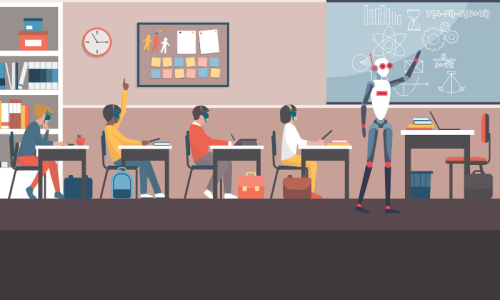KARACHI: The importance, rather dire need, of clean and functional public toilets, especially for women, was discussed at a seminar held at the Urban Resource Centre (URC) here on Tuesday.
Senior journalist Zofeen T. Ebrahim said that she encountered embarrassed faces or sheepish smiles whenever anyone outdoors mentioned needing to use a toilet. “But there is still a need to speak up on this because stopping or controlling oneself can lead to health issues,” she said.
“In our country girls drop out of schools after reaching puberty because of menstrual hygiene needs,” she pointed out.
“Women with small children need toilets more because their children also need to go,” she said.
Researcher says millions of women face issues, girls avoid going to schools due to absence of the public facility
“I’ve surveyed the city, I’ve been to Sindh and the toilets here leave me nauseous. So when I travel, I don’t drink water just so I won’t need to use the bathroom. It is so stressful that I think twice before attempting to travel by road,” she said.
“People in the USA also talk about toilets. But there the debate is about fewer toilets than needed. And here we talk about not having any toilets. Meanwhile, countries such as Singapore, Japan, etc which are more advanced than the US, debate about better and cleaner toilets for citizens,” Ms Ebrahim said.
Role of SDG unit questioned
“There are some 10 bodies here working on Water, Sanitation and Hygiene or WASH. Toilets also come under it. But nothing is done about our public toilets. There is an entire Sustainable Development Goals unit here, which is supposed to be working on toilets but all they do is hold meetings, and nothing beyond that,” she said.
“Our policymakers also have women at home. Then why don’t they think about their needs? If they make a toilet ministry, would anyone here want to be its minister?” Ms Ebrahim wondered aloud.
Chairperson of the Sindh Commission on the Status of Women Nuzhat Shirin said when issues that had anything to do with women were not taken seriously here, then what to say about toilets for women?
“Laws or policies here are not made considering women or their needs. They are not a priority and hence they are not on the agenda,” she said.
Researcher Zoha Alvi said that she was based in Karachi now but earlier she had lived in Rawalpindi also for some four years. “Normally, people who live in Rawalpindi or Islamabad often travel to Murree and the northern areas. But in my four years there I was unable to go because my mother suffers from obsessive compulsive disorder (OCD), which is a fear of contamination.
“Due to the lack of a proper public toilet system we never travelled to Murree. With so many stresses in life, rest and recreation is also a basic need, but we don’t go out anywhere for sightseeing because of a lack of such facilities,” she said.
“The basic needs of women are not given any importance. Once when some travel plans were being shared with me and I asked about the washroom arrangements, I was asked what for?” Ms Shirin said.
Ms Alvi said that in rural areas, where women work in the fields, they had to wait till nightfall to use the same fields as their toilets. “And there they also encounter snakes and dogs. It’s a huge health and safety issue for them,” she said.
‘Issue affects millions’
Sharing some statistics regarding water, sanitation and hygiene, she said that in Pakistan, some 53,000 children die of diarrhoea every year because of drinking polluted water, 8.2 million women of reproductive age who were stuck in last year’s floods got urinary tract infections, 12 million girls were out of school because of the lack of toilet facilities in schools and 55 per cent of girls enrolled in schools did not attend school when they had their periods.
“What to say of schools, here even universities such as the NED University and Karachi University have dirty bathrooms with no maintenance and cockroaches, lizards and rats,” she pointed out.
Making toilets an investment, not expenditure
“According to the United Nations, we lose two and a half billion dollars every year due to the lack of toilets here. There are 79 million Pakistanis without toilets here. Without toilets, our productivity also falls. So making toilets is not expenditure, it is an investment,” she said.
Architect and town-planner Arif Hasan said that what he heard about toilets was nothing new because he had been seeing it all since 1968.
He said that according to law, it was the responsibility of the mayor and the government to build toilets and keep them clean, functioning and well-maintained.
But since that is not happening, the people can join hands to make a ‘Karachi public toilets association’, which can push for building toilets and have them segregated along with also having an attendant in each. It can also look into a proper toilet design. “This toilet issue cannot be separated from women’s policy,” he concluded.
Earlier, Seema Liaquat of the URC said that a large population of women refrained from leaving the house or travel distances because they were worried about what they’ll do if they need to use the toilet. She also shared a number of repulsive photographs of our public toilets and the dirty and broken state that they were in.
All need to be cleaned and many do not have running water, proper lighting or ventilation. Some are also broken and needed maintenance.
“Our politicians like to boast and make big promises whenever elections are near but when it comes to building or repairing toilets, they do nothing,” she said.
Published in Dawn, August 9th, 2023
















































Dear visitor, the comments section is undergoing an overhaul and will return soon.